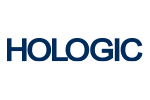The Medicare Payment Advisory Commission (MedPAC) recently released its long-awaited
report reviewing the Center for Medicare & Medicaid Services (CMS) approach to pricing laboratory services under the Clinical Laboratory Fee Schedule (CLFS). The Protecting Access to Medicare Act of 2014 (PAMA) required CMS to establish a new fee schedule, which ASCP has long criticized as skewed toward the rates typically paid to high-volume independent reference labs. The Further Consolidated Appropriations of 2020 mandated that MedPAC “examine the methodology CMS used to set private-payer-based payment rates for CLFS services and report on the least burdensome data collection process that would result in a representative and statistically valid data sample of private market rates.
In its June report, MedPAC concurred with ASCP that CMS’s data overrepresents independent laboratories and that data from hospital and physician-office laboratories were underrepresented. MedPAC noted that CMS’s approach clearly lowered the price of many laboratory tests. That said, MedPAC observed that CMS’s new payment system “resulted in smaller reductions (or even payment increases) for newer, more expensive tests.”
The MedPAC report also stated that collecting private-payer data using a survey could provide a more representative distribution of laboratories reporting data and that this would reduce the reporting burden as fewer laboratories would need to report data. MedPAC, however, recommended against such a fix, arguing that this “may not be prudent given the trajectory of private-payer prices for new high-tech laboratory tests.”
ASCP is clearly disappointed with MedPAC’s conclusion as its recommendations against assuring that payment rates are accurate takes a back seat to the possibility that over time costs might go up. ASCP remains committed to seeking changes in CMS’s approach to pricing the CLFS.
To read more articles from this issue of ePolicy, click here. To learn more about ePolicy News and access past newsletters and articles, click here.
For more information regarding ASCP's advocacy initiatives and policy positions, please contact ASCP's Center for Public Policy at (202) 408-1110.

ASCP ePolicy News is supported by an unrestricted grant from Hologic.
